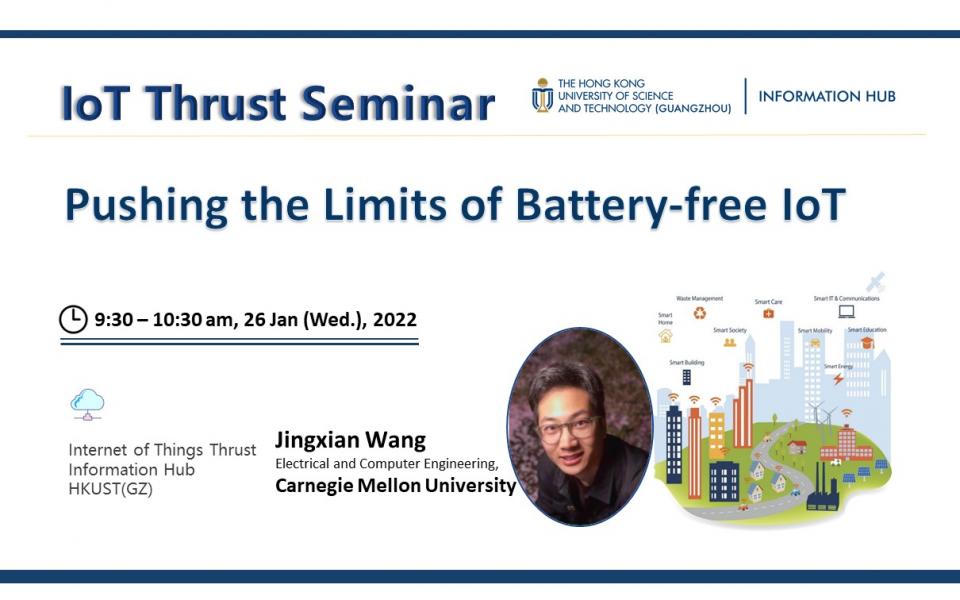IoT Thrust Seminar | Pushing the Limits of Battery-free IoT
Supporting the below United Nations Sustainable Development Goals:支持以下聯合國可持續發展目標:支持以下联合国可持续发展目标:
The Internet-of-Things (IoT) concept conjures a long-term vision of trillions of everyday objects (e.g., clothing, keys, and bags) connected to the Internet wirelessly and empowered with intelligent capabilities. However, having battery-powered devices attached to everyday objects is very limiting. Users have to replace or charge the battery frequently. Batteries also add bulk and cost to the device. One of the most fundamental requirements of any solution to achieve IoT is low cost, and ideally, battery free. A classic, commercially used solution is passive RFID and NFC tags. However, these technologies are limited in their scalability and use cases due to their short communication range and limited sensing capabilities. In this talk, I will describe how I push the limits of battery-free IoT systems. Specifically, I approach this from three perspectives: communication, sensing, and beyond. I will talk about how we can enhance the communication range of commercial battery-free IoT systems. I will also demonstrate how we can enable new sensing functions of battery-free IoT by co-optimizing wireless systems and soft materials. Beyond traditional wireless networks and systems, I will describe how I bring my battery-free IoT techniques to new research and application domains, such as cooking and soft robotics.
Jingxian Wang is a Ph.D. candidate in Electrical and Computer Engineering at Carnegie Mellon University. He works on wireless systems with an emphasis on developing next-generation IoT technologies. His work has won the UbiComp 2020 Best Long Wearables Paper Award, the IPSN 2021 Best Paper Award, the UbiComp 2018 Best Demo Honorable Mention Award, and was selected to the 2019 ACM SIGMOBILE and Communication of ACM Research Highlights. Jingxian is also the recipient of the Microsoft Research PhD Fellowship (2020-2022).
